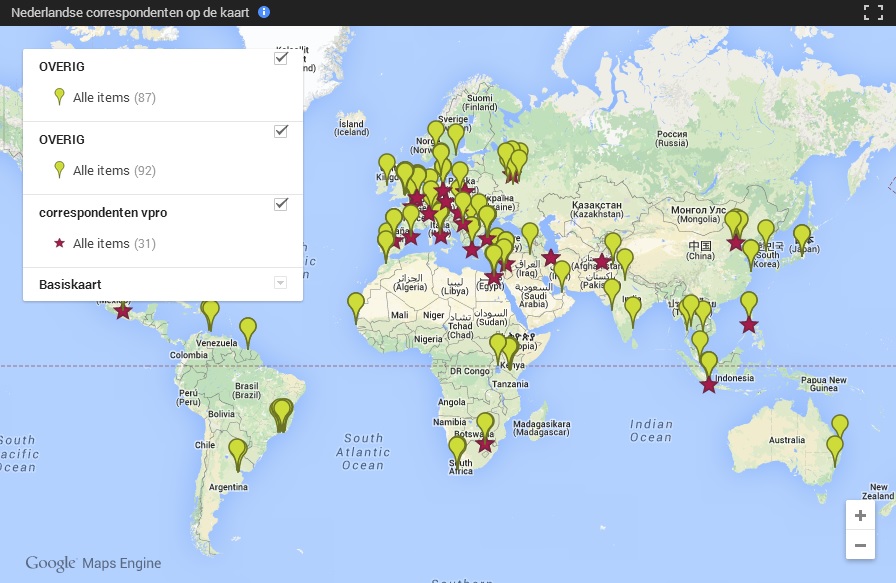Gouden tijden in de journalistiek, alleen niet voor de freelancer
Het zijn gouden tijden als nieuwsconsument. Nieuws is maar een klik verwijderd van de gebruiker en het meeste is zelfs helemaal gratis. Maar de tijden konden niet slechter zijn voor de buitenlandjournalistiek en haar freelancers, schrijft Bill Keller in een opiniestuk in The New York Times.
The problem with the cutbacks in professional foreign coverage is not just the loss of experience and wisdom. It’s the rise of — and exploitation of — the Replacements, a legion of freelancers, often untrained and too often unsupported. They gravitate to the bang-bang, because that’s what editors and broadcast producers will pay for. And chances are that nobody has their backs.
Niet makkelijk
Terechte kritiek van Keller. De Buitenlandredactie besteedt veel aandacht aan het lot van de buitenlandjournalistiek en de positie van freelancers (in conflictgebieden). Zoals de te dure veiligheidstrainingen en de oplossingen daarvoor, wanbetalende mediaorganisaties, niet-bestaande salarissen en de moedeloosheid die hoort bij een freelancerbestaan in het buitenland. Hoewel het het correspondentschap nog altijd het mooiste beroep ter wereld is, is het niet altijd even makkelijk.
Keller weet in zijn column ‘It’s the Golden Age of News‘ de huidige problemen in het vak treffend te beschrijven . Voor freelancers ontbreekt vaak de institutionele ondersteuning (bureauredacteur, advocaten, materiaal, training etc.) vanuit media-organisaties, die traditionele correspondenten – tien, twintig jaar geleden genoten. Keller:
These days the disturbing trend is to pay freelancers on spec. Without even offering a contract or a formal assignment, which at least implies some responsibility, news organizations ask independent reporters to pitch completed stories or photos after the rental cars have been paid for, after the work has been done — after the risks have been taken. (And even then, it can be an ordeal to get paid. A freelancer in Yemen recently started a campaign to “name and shame” news organizations that stiff journalists.) When a freelancer gets into trouble in a conflict zone, “You just fall into a black hole,” said Emma Beals, a British journalist who has worked in Syria and has become an advocate for freelancers there and in other treacherous places. She estimates that there are currently 17 kidnapped foreign journalists being held by various factions in Syria’s civil war. The majority of them are freelancers.
Sterft de oorlogsverslaggever uit? Freelancers praten over misogynie, keiharde concurrentie en extreem lage betalingen voor producties:
Hoopvolle toekomst
Gelukkig zijn er organisaties als het Frontline Freelance Register, Reporters Instructed in Saving Colleagues (RISC) en het Rory Peck Trust die ervoor zorgen dat freelancers beter voorbereid en ondersteund te werk kunnen gaan. Hopelijk draagt De Buitenlandredactie ook een steentje aan de bewustwording in Nederland bij aanstaande correspondenten.
De situatie voor freelancers in het buitenland kan verbeteren met hulp van dit soort organisaties, schrijft Keller. Maar hij blijft huiverig voor de toekomst. Omdat ook de nieuwsconsument een verantwoordelijkheid heeft. Als goede buitenlandjournalistiek gefinancierd wil blijven worden, moet daar behoefte voor zijn bij een – betalend – publiek. En het is maar de vraag of dat zo is. Keller weet het niet.
Wat denken jullie?
Lees het hele artikel van Keller hier: It’s the Golden Age of News




